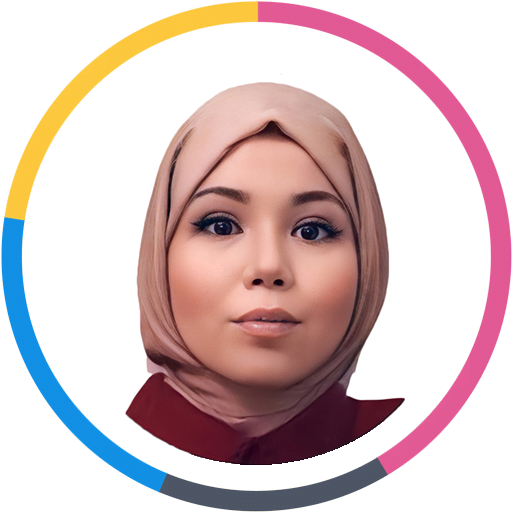Personal philosophy statements can be fantastic in helping you focus on your goals and determining the steps necessary to achieve them.
Developing a personal philosophy is an invaluable exercise that allows you to understand yourself better – both professionally and personally.
You can create a roadmap to guide your actions and decisions by reflecting on your beliefs, values, and priorities.
This article guides us into what personal philosophy entails and how to craft a great one.
Meaning of “Personal Philosophy”
All the world’s greatest humanitarians, gurus, faiths, and charities have one. But what exactly is one’s philosophy, and how can it serve one? One’s philosophy encompasses all that a person values, believes in, and is motivated to live by.
Its goal is to serve as a guidepost for your daily decisions and help you live according to your principles. Ultimately, your goals drive whatever endeavor you undertake or inspire you to pursue any specific action.
How to Craft Great Personal Philosophy Statements
Personal worldviews change with a person’s development, education, and experience.
As you go through life, you will always get a more nuanced view of the world and a simpler philosophy to guide your actions. So, without further ado, let’s get into some pointers to get you rolling.

1. Enhance Your Sense of Individuality
The first step in becoming who you want to be is accepting who you now are. Take a personality test or ask your friends about your strengths and weaknesses and what motivates you. Maintaining focus might be aided by writing down your ideas in a journal.
Some people find that having a personal philosophy helps them remember who they are and what they’re capable of. You could be on a voyage of self-discovery, learning things about yourself that you didn’t know previously. Your philosophy statement can be improved by focusing on its intended purpose.
2. Determine Your Ideal Self and Stick to It
People have different goals in life; some aim for grandeur, while others want to be left alone in peace. I’m curious as to your ultimate goal(s). Possibly, you know roughly what it is you want to do, but you need help figuring out how to get there. This is why it’s helpful to have your philosophy to use as a starting point.
Answering the following questions will help you figure out what you want from this trip.
When you think about your daily routine, what makes you most eager to get out of bed?
- If you had to sum up your beliefs in one sentence, what would they be?
- In what ways do you think it’s necessary to uphold specific values?
- Which moral traits do you admire in other people?
Your answers to these questions can serve as a roadmap for your life’s purpose. As such, the answers may shed light on how you envision your future self-relationship.
3. Create Your Statement of Philosophy
Look at your notes from these exercises. See if you can see any recurring themes in terms of the values and characteristics that emerged. This could be seen as a fundamental moral tenet of your character. It could be overt, such as altering your self-talk or your expectations for the future, or it could be more subtle.
Using the information you’ve obtained, try writing your personal philosophy statement while keeping the factors we’ve just discussed in mind. Your guiding philosophy should be concise and to the point. Don’t worry if this isn’t how it comes out at first. Changes can always be made.
Developing a philosophy of life is a lifelong endeavor, and your beliefs and values will evolve as you do. There is always something to take away from any situation, no matter how dire it may seem. To grow, you need to broaden your horizons and be more accepting of the change.
Ultimately, you are the total of your experiences. So, keep your development active by taking advantage of opportunities to live and learn.
4. Extending One’s Worldview and Life-Learnings
Your quest to formulate a guiding philosophy has resulted in your actively seeking out those experiences that get you closer to realizing your goals. Consider engaging in some of these pursuits to help shape your unique philosophy.
5. Take in Some Literary Works
Both fictional and nonfictional books can teach you about the world, yourself, and your passions. Reading is a form of education because it enables you to learn about the world through the eyes and experiences of others.
It will also create yearnings in people, motivating them to go on adventures or to try something new. You open up a world of potential whenever you dive into a book.
6. Learn From Archives of Interviews
Looking through archives of exciting interviews, you might learn something about a subject you had never considered before. To hear the opinions of others is to form your own.
Equally as motivating as reading profound quotes is watching exciting interviews. In contrast to simply reading the words, you see how they’re supposed to be delivered, which might increase their effect.
7. Reach Out to Complete Strangers
Talking to people different from you, like watching interviews, can help you learn about new topics. Talking to those with opposing viewpoints can help you learn more about the issue at hand and the people who hold those viewpoints.
Your final destination may not require you to alter your thinking at all. However, hearing the world from a new angle can change your mind or reinforce your values. You could learn something if you give people from different backgrounds an opportunity to share their experiences and opinions.
Conclusion
Great personal philosophy statementsaddress individual issues. They give insight into your experiences and what is most important to you.
When crafting your philosophy statement, start from the inside out. Work from your more personal, subjective things first and then build your outward expression of your worldview.
Explore All Write Personal Statement Articles
How to Draft Meaningful Length of Law School Personal Statement
Are you confused on how to write a law school personal statement? One of the essential elements of your application…
Effective History and International Relations Personal Statement to Try
Are you considering studying history and international relations? Or you may be curious about what a degree in this field…
Guide to Quality Global Management Personal Statement
Are you applying for a global management program and want to stand out from the crowd? A well-written personal statement…
How to Draft Better Examples of Personal Statements for Residency
Achieving a residency can be a massive accomplishment for any aspiring medical professional. To secure your spot in one of…
Tips for Drafting a Free Example of Personal History Statement
A personal history statement can be crucial to many applications, from university admissions to job search processes. This blog will…
Writing Compelling Dietetic Internship Personal Statement
Applying for a dietetic internship is a rigorous process and requires submitting a personal statement, which is an essential part…
